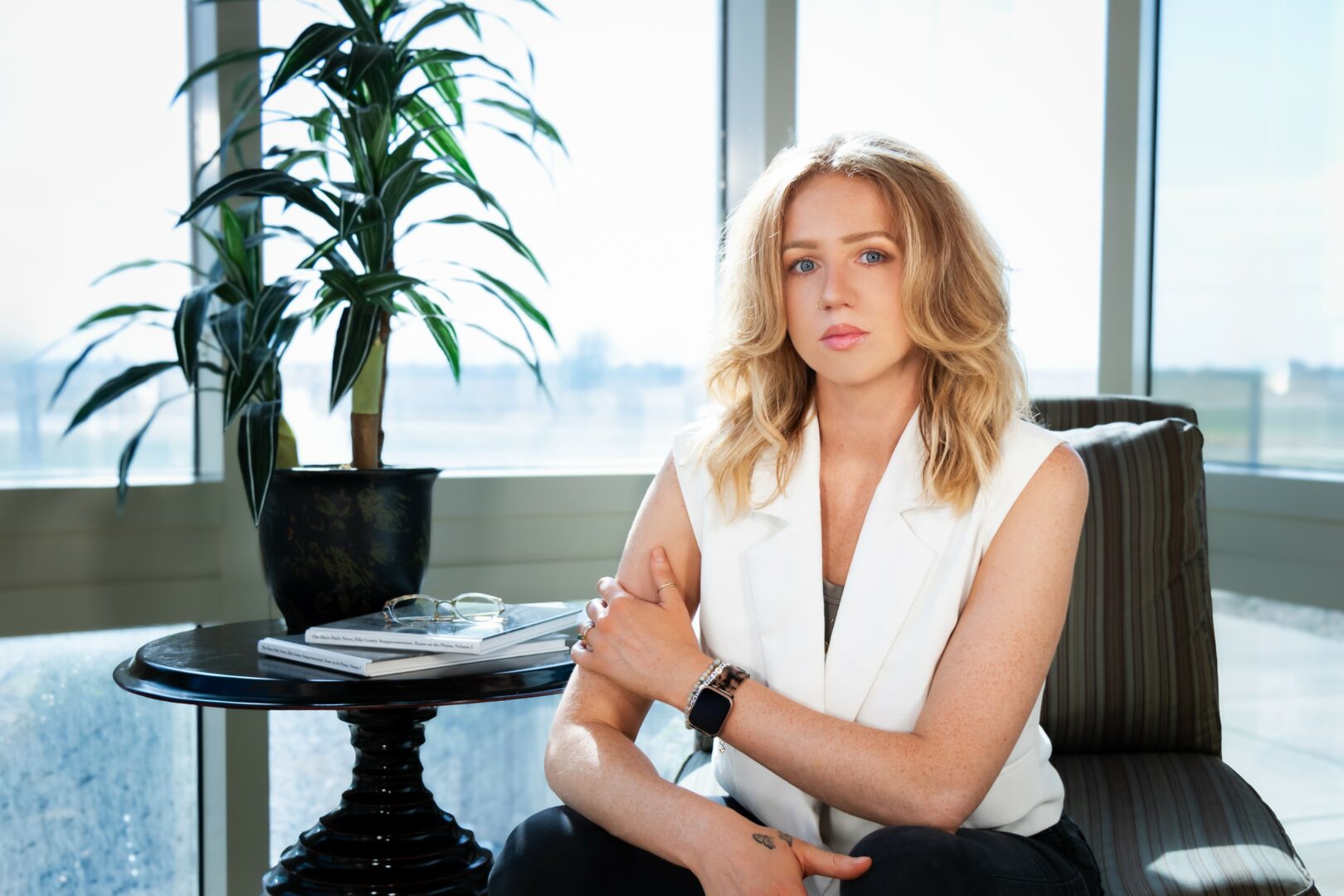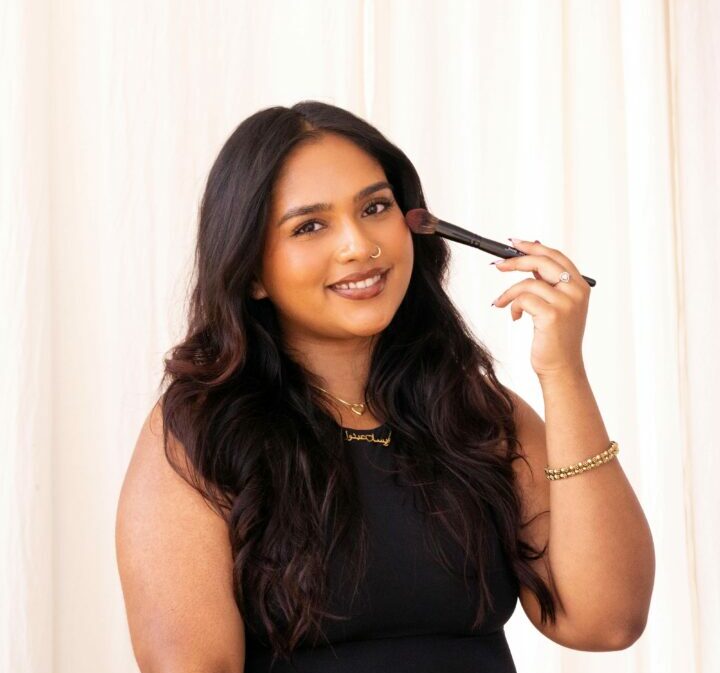We recently connected with Erica Wachs and have shared our conversation below.
Erica, so great to have you sharing your thoughts and wisdom with our readers and so let’s jump right into one of our favorite topics – empathy. We think a lack of empathy is at the heart of so many issues the world is struggling with and so our hope is to contribute to an environment that fosters the development of empathy. Along those lines, we’d love to hear your thoughts around where your empathy comes from?
As only a mother can, mine will tell you that I have always been naturally empathetic.
Instead, I credit two forces with shaping of my empathy: my grandmother and my writing. My late grandmother Roz was a social worker from Long Island, who never had a bad thing to say about anybody. Before her formal training, she was the woman who would take the time to get to know everyone, from the woman sitting next to her in the nail salon to the McDonald’s employee who gave her her coffee (McDonald’s coffee was amongst her favorite). She had that very special, rare ability to take someone in and make them feel seen as a whole person. It feels very cliché, but people poured their lives out to her because they trusted her to take care with their flaws and personhoods and secrets without judgment.
I would love to say that it was her curiosity and lack of judgment towards others that led me to start writing, and I suppose, in a way, it was. But rather than apply that treatment to other subjects and people, I started writing in high school to develop empathy for the person I was and too afraid to articulate who I was becoming: a closeted lesbian who hated math class, who found herself too big for the small suburban town in which she was raised. The more I explored and expressed various facets of that character — through straight men, superheroes, and even anthropomorphic pieces of art — the more I developed empathy for those other characters, the ones I was actually writing. Once they were no longer serving my life, I wanted them to have fully-realized stories of their own. Of course, I was lucky enough for this process to be aided by formal training, and an English major, which encouraged the voracious reading of stories to help me continue to develop empathy for those whose stories I would never have interacted with otherwise.
Let’s take a small detour – maybe you can share a bit about yourself before we dive back into some of the other questions we had for you?
I am a playwright and television writer. Sometimes, this looks like spending months sitting at a screen and waiting for an idea to spring to life. Other times, I am deep in revisions for a play or a script, and will sit around my apartment hunched around my computer, forget to eat or brush my teeth, and just write, often texting my trusted writer friends, “Does this phrase work? Does this line make you laugh? Did I address the thing you were confused about on page 56? Am I good enough?” A lot of the time, it looks like putting yourself out there and getting rejected. And then, those rarest of times, you are published, and produced, or hired, and you want to do the whole thing all over again.
This personal development has been guided by my professional experiences as a writers’ assistant on various wonderful television shows, including MAID (Netflix) and American Horror Story (FX). As a writers’ assistant, I relish helping the brilliant writers I work for refine and arrive at the strongest version of their stories, while also learning as much as I can about story, structure (plot! That tricky fish), character, and genre.
In trying to maintain the experience of a room even when I’m not in one, I am the co-producer of a fantastic organization called See What Sticks, which I’ve been involved with since 2019. See What Sticks, co-founded by Ilana Peña and Madeleine Hendricks Lewen, is a monthly workshop show where artists across any discipline can develop up to 10 minutes of any type of in-progress material, from stand up to scripts to songwriting. Having been on all sides of the SWS process — as a workshopper, an attendee, and now a producer/facilitator — I can speak to the power of having a safe artistic space to feel supported by peers’ suggestions, hear my work on its feet, and (sometimes, inevitably), fail big. What I love the most about SWS is its ability to provide LA artists with the type of creative development space we so often crave, but are often unable to find in an industry that often prioritizes product over process.
If you had to pick three qualities that are most important to develop, which three would you say matter most?
At the beginning of my first-ever creative writing seminar, my professor told us that no matter how much formal training we had, we would never be “professional” if we did not read as much as we wrote. While in college, I would typically average seeing up to two plays a weekend, I have now expanded that into my professional life by not only engaging with and seeking out art I’m drawn to, but reading and studying the respective scripts to understand the mechanisms of how they work. How does Sally Wainwright translate breaking the fourth wall in her “Gentleman Jack” scripts vs. Phoebe Waller Bridge’s “Fleabag”? are questions that keep me up at night. I can always be learning more. You can always be learning more.
It is a lifelong journey, but simultaneously getting better at receiving criticism and learning how to implement notes into a story is a skill I will constantly be honing. (Equally important: the art of knowing what note to take!) I used to be so precious with my work, and in many ways, I still am.
And finally, something that has been so freeing for me as a professional writer is transforming my thinking from a scarcity mindset to one of abundance. Coming from smaller schooling environments, where opportunities for playwrights (especially Jewish lesbian playwrights) were so few and far between, it was easy to go into a “me vs. them” mentality. Seeing how many rooms are currently running — and how many opportunities marginalized writers are now getting to tell those stories (though, of course, I hope it goes without saying that we still need WAY more) — have helped me truly start to embody the ethos that opportunity for one begets opportunity for all. There is space for all of us to exist and thrive. Which may sound super woo-woo, but is honestly a mantra I have returned to again and again.
Thanks so much for sharing all these insights with us today. Before we go, is there a book that’s played in important role in your development?
Ok, not a book, not even a play, but the show “Gilmore Girls” has completely transformed my development as a writer and thinker. I could (and have) written essays about the importance of this work — beyond its network drama trappings and pitfalls, and despite the choices I absolutely do not agree with. But I think what makes “Gilmore Girls” so central to my current thoughts as a writer at the moment is the space that the show gives its characters to fall into cycles and patterns, and for us to bear witness to these people’s lived experiences, again and again. In college, my playwriting advisor used to tell me all the time that we will all just be rewriting a different version of the same play/story that we are going to tell for the rest of our lives. I think “Gilmore Girls” is the best example of how impactful and successful that notion can be, especially the ways in which mothers and daughters relate to each other. We see fights in Season 1 and fights in Season 4 and fights in the freaking revival, and all of them are mostly about the same thing and none of them are ever fully resolved or forgotten, and yet — these people are still a family who love each other, who show up for each other, who are there for each other. I think this is one of the truest depictions of life and family I’ve seen reflected in art, and — whether or not that’s the point of what art should do (a whole separate discussion) — for that, “Gilmore Girls” continues to inspire my creative mindset.
Contact Info:
- Website: www.eriwachs.com
- Instagram: https://www.instagram.com/ericawachs/
- Facebook: https://www.facebook.com/ericafwachs
- Linkedin: https://www.linkedin.com/in/erica-faye-wachs/
- Twitter: https://twitter.com/erica_wachs
- Other: www.seewhatsticksla.com




Image Credits
Nina Goodheart Jasper Lewis Jill Petraceck




